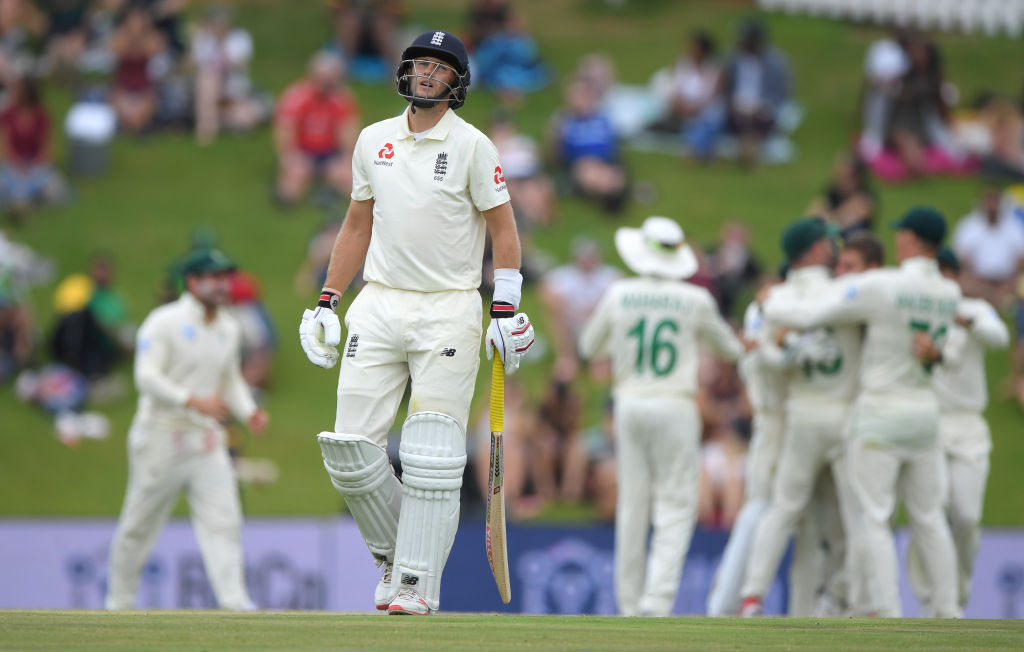The contrasting yet similar fortunes of England and South Africa in 2019
Cricket is a universe where worlds collide. While England were on the road to make history in the 2019 World Cup, South Africa crashed out of the competition with just three wins out of nine matches.

Makes one think that the English team had a great year, while South African cricket has failed severely in 2019. Reminds us of the year 2015, when England had a shameful exit from the World Cup and South Africa made it to the semifinals, doesn’t it? But the two teams in question, part of the same collision in the universe of the sport have essentially had the same fate in Test cricket this year.
Dial ten years back, who would’ve thought that the underdogs in ICC tournaments, England would lift two ICC trophies in the 2010s? For a long long time, precisely half of the decade, people including the hardcore English cricket fans believed, that Paul Collingwood lifting the WT20 trophy in 2010 would be the only thing to celebrate in this decade. But when Eoin Morgan’s World Champions side lifted the World Cup, it changed everything.
It all started four years ago when England had returned from a devastatingly disappointing stint in the World Cup down under. The English team was in desperate need of stability, discipline and a miracle to resurrect their perished ODI form. Together ECB director Andrew Strauss and captain Eoin Morgan and coach Trevor Bayliss had their eyes set on the next World Cup, the one in 2019 at home. The feeling that England’s short-form cricket style needed to change drove Strauss as he gave Morgan and Bayliss his full backing and freedom to make the necessary changes to remodel the team into the best ODI side the best in the world.
"As we build towards three major ICC events over the next four years; the World T20 in India in 2016 and the Champions Trophy and World Cup which will be staged in England and Wales in 2017 and 2019 respectively," Strauss had his entire blueprint ready.
A new journey had begun but at the cost of what?
Meanwhile, before South Africa met the start of their horrendous form, before the painful exit from the World Cup, the perishing board, there was a lot to cherish throughout this decade. The Proteas toured England in 2012 for a three-match Test series and a comfortable 2–0 win helped them claim the top spot in the rankings, which they retained for over a full calendar year. A week following that, South Africa became the first team to top the rankings in all three formats of the game at once. Once again, in 2014, they regain the No.1 spot after defeating Australia. With AB de Villiers, Dale Steyn, Hashim Amla, Morne Morkel and Vernon Philander, the Proteas were supposed to go on as one of the best teams at the end of the 2010s. But now all of them have left or retiring, leaving South Africa far away from the dream.
Not everything in cricket is as poetic as the storyline of the Poms and the Proteas, the two Ps, in the decade-ending year.
While England lost to a stooge West Indies side in the Caribbean in February, South Africa lost 2-0 to Sri Lanka, the underdogs, at home for the very first time in history. After the World Cup, England failed to stop Australia from retaining the Ashes at home, whitewashed by their fellow World Cup finalists and South Africa were whitewashed in India.
“Luck is that which is beyond my control,” the English cricketer and selector Ed Smith wrote in his book on the subject. But what was in his control for sure was the nation completely drifting away from what they’ve boasted about the most in history- Test cricket. What Strauss started still continues to be of top priority under Smith.
Meanwhile, everything that could go wrong with a cricketing structure did go wrong with South Africa. Firstly, the racial ideologies and pressure from the government to apply those had the team broken. That further led to the able players, from Kyle Abbott, Duane Olivier to Rilee Rossouw, leaving for their respective Kolpak deals. Earlier in December, the Board of Directors of Cricket South Africa suspended their CEO Thabang Moroe upon allegations of misconduct, pending further investigations. This happened following Moroe’s public apology regarding the ban on five journalists over the weekend and possible “failure of controls in the organisation”.
Despite and amidst all the chaos, the two worlds met last week at Centurion, the nation’s cricket fortress. If there’s anything such as the existence of poetic justice, then South Africa’s year-ending treat of victory in the first Test against England was one. It was a rare sign of positive in their otherwise diminishing fortunes, be it their international form or the dying structure of their board. Meanwhile, for England, it was a further deeper look into their collective failures in 2019.
But why was a home win so important to the side? Not just because of the fact that they lost a Test series at home or their terrible form, but hosting a full-fledged Test series in these drastic conditions was in itself a huge pressure. But when have a team comprising the influence of Graeme Smith and Mark Boucher ever give up? And to quote Suresh Menon, “A Sportsman's Faith Is In The People Around Him, Luck Is His God”. I think that’s what Faf du Plessis abides by. “We needed this win as the last couple of months have been tough. We worked really hard building up and I thought it was a really good Test. The effort today was incredible… We haven’t won a Test for a while and for us, this is the start of a new chapter.”
Despite losing their stalwarts, South African captain believes this win is a “new chapter” for them. Meanwhile, England still stuck in the World Cup dream, is in complete denial of the bigger picture.

Comments
Sign up or log in to your account to leave comments and reactions
0 Comments